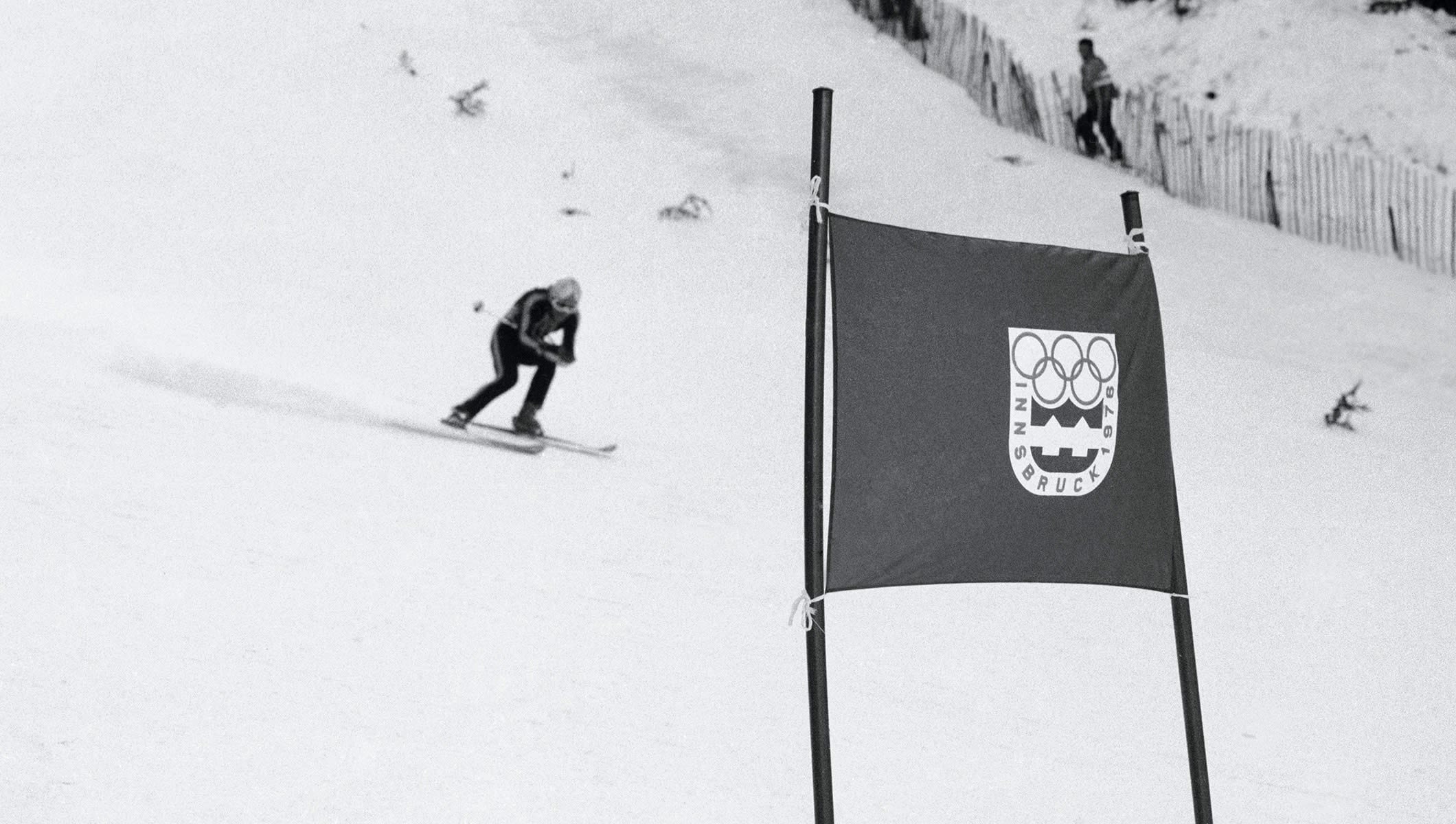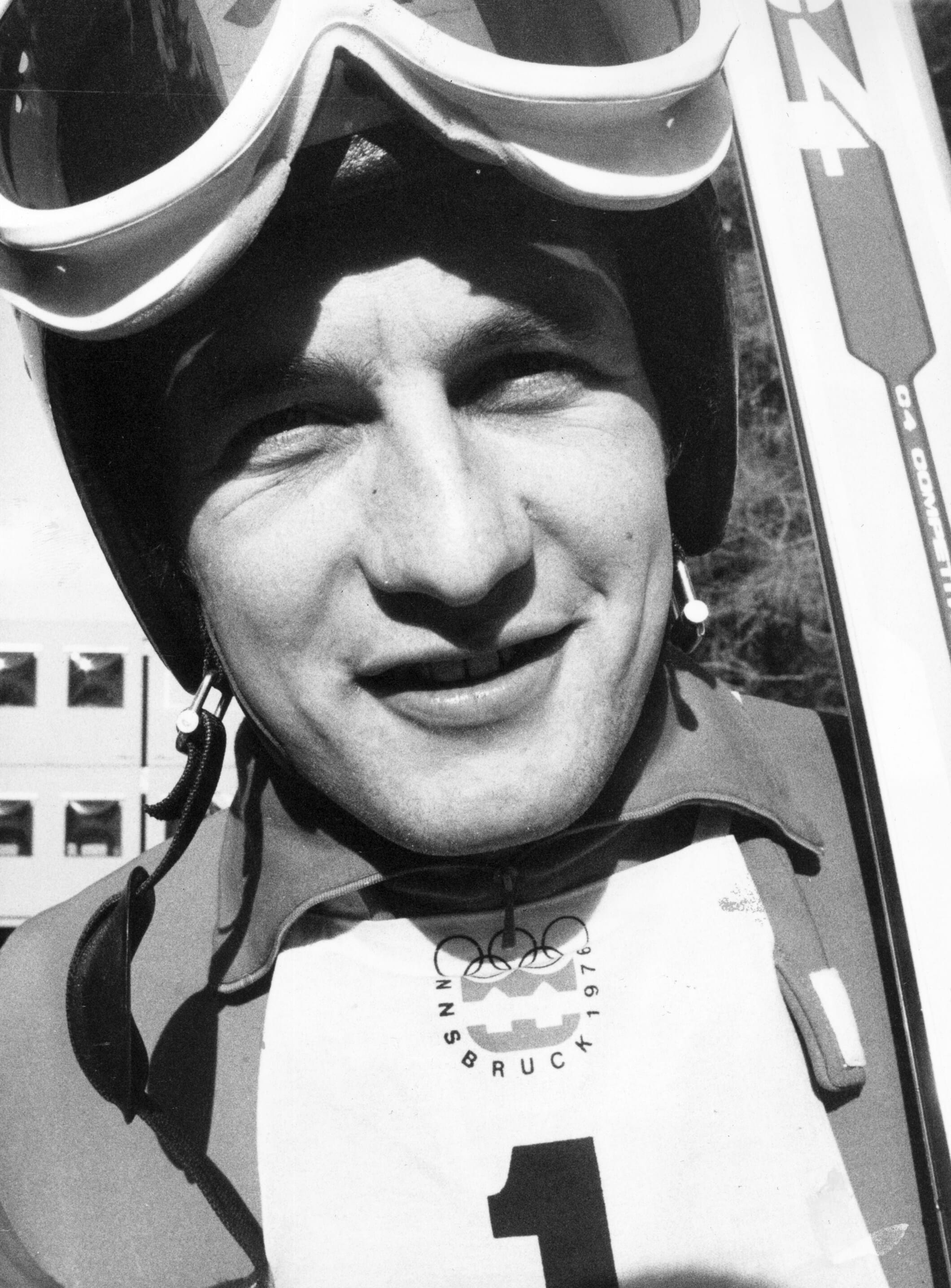Klammer Express storms to downhill gold
Franz Klammer flying down Patscherkofel – a blur in his bright yellow ski suit, wildly waving his arms and ski poles to stay vertical – is one of the defining images not just of downhill skiing, but also of the history of the Winter Olympic Games.
His heart-stopping 1976 run in the Austrian Tyrol – his own back yard – earned him a gold medal and proved to be the defining moment of his career.
Roared on by 66,000 spectators and a clarion of cowbells, the man nicknamed The Klammer Express took just 1:45.73 to complete the vertiginous 3km run, thrilling the crowd and leaving millions of TV viewers open-mouthed.
Klammer, a farmer’s boy born on the border between Yugoslavia and Slovenia, was identified at an early age as a prodigiously talented – and fearless – skier.
Part of the national squad by the age of 18, he had built a formidable reputation in the World Cup by the time he was 20. Two years later, he carried the flag for Austria at the Opening Ceremony in Innsbruck.
Though tipped to take gold in Innsbruck from the start, having won eight out of nine World Cup downhill races the year before, it was the electrifying manner of Klammer’s victory that set the crowd alight and made sporting history in the process.
Going into the race, Klammer, of Mooswald in Carinthia, was slated to make the final run in a field of 15 – raising fears that the course would be treacherously icy when his time came. But it was these conditions that would earn him legend status.

His main rival, reigning Olympic champion Switzerland’s Bernhard Russi, went third and skied flawlessly, taking a half-second off the next best time, set by the Italian Herbert Plank. By the time Klammer had watched his 14 competitors fly down the mountain, Russi remained in pole position – the man to beat.
I thought I was going to crash all the way. I gave myself terrible frights. Now I’ve got everything – I don’t need anything else. Franz Klammer Austria - Franz Klammer Austria
The buzzer went and the 22-year-old daredevil – under immense pressure – flung himself from the starting gate on to a run that had, as feared, been turned into a sheet of ice. Astonishingly, he made no concessions to the conditions.
An incredible display of bravado allied to innate skill saw him career down the mountain, legs at wild angles, permanently teetering on the brink of disaster, one false move away from a dangerous wipeout.
But after 2,000m an error left him one-fifth of a second behind Russi. Recalling the race, he said he knew he would have to produce “something special” to win. And how he did. At the Bear’s Neck part of the course he instinctively took a very high turn – almost brushing the crowd.
The bold move gave him the momentum he needed for an incredible comeback in the final 1,000m, where he somehow held his course to descend 870m at an average speed of 103km per hour.
Clipping one-third of a second of the Swiss skier’s time, Klammer triumphed before an ecstatic crowd and millions of awestruck TV viewers. It remains the most thrilling downhill run in sporting history – and one that left the silver medallist awestruck.
Russi, gracious in defeat, embraced Klammer in a congratulatory hug at the finish line. He told journalists afterwards: “I felt the power on the mountain of 60,000 people screaming for their man. I became kind of a fan of Franz.”

Immediately after the race, the new champion told reporters he had skied so close to the fence that he heard a woman spectator scream and feared he’d hit her with a pole.
As for his immediate plans, he said: “My father has a pitchfork waiting. We have to spread the dung for the spring planting.”
Having had time to reflect on his feat, he later added: “I thought I was going to crash all the way. I gave myself terrible frights. Now I’ve got everything – I don’t need anything else.”
As for that yellow outfit: Klammer later revealed he wore it because the Austrian team’s gold and black ski suit was so tight it made it impossible for him to crouch down, so he reverted to his own gear. Of such accidents are Olympic legends made.